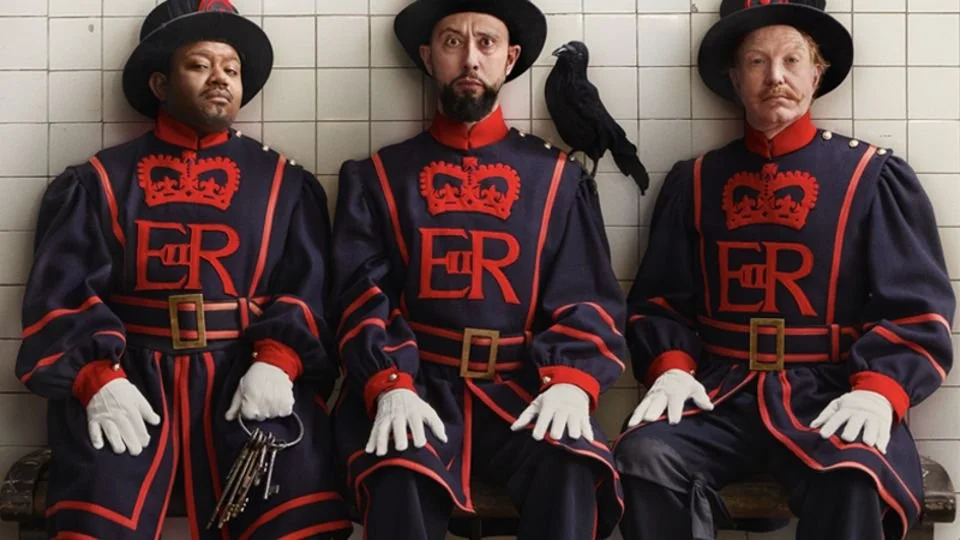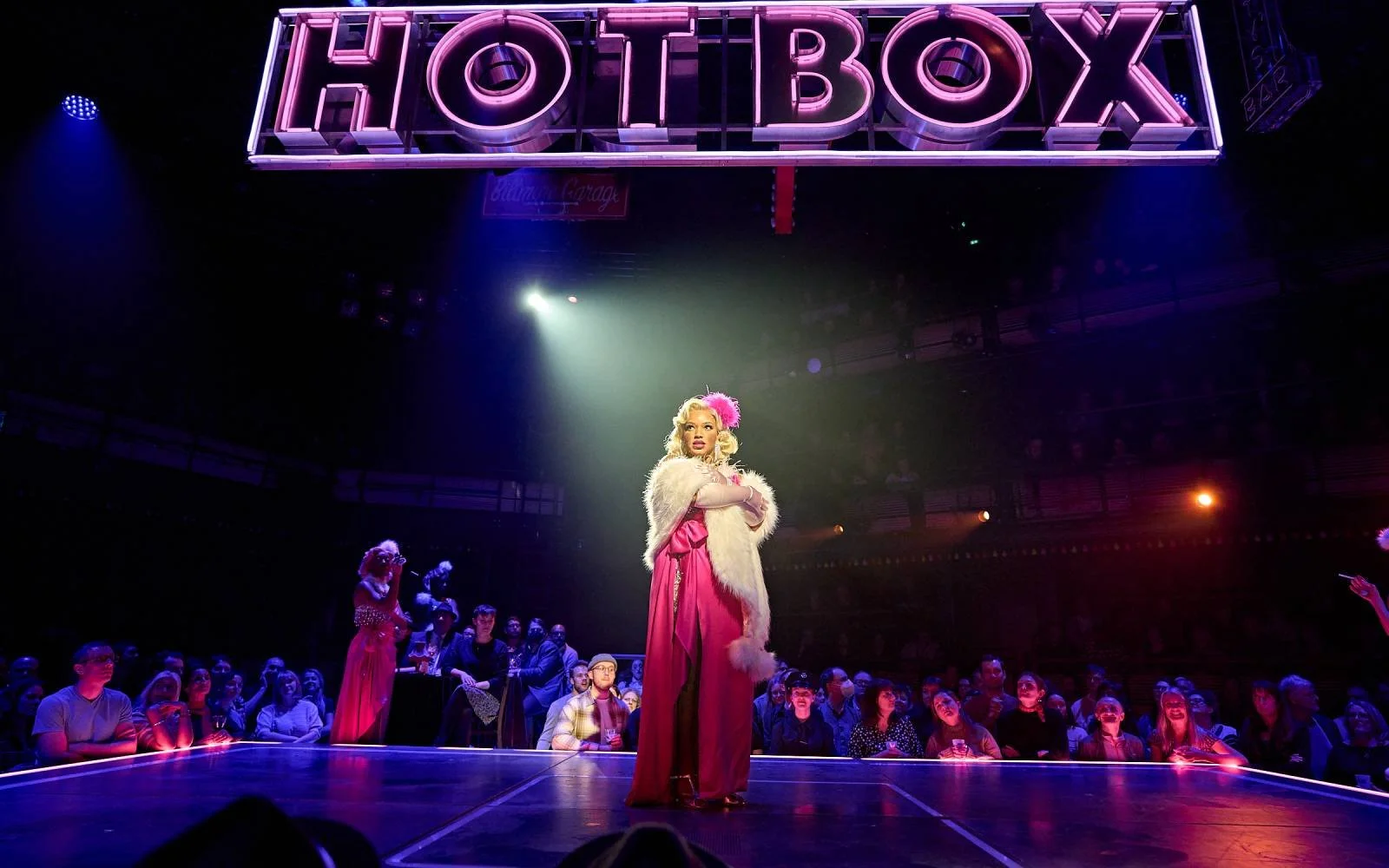THE YEOMAN OF THE GUARD - ENGLISH NATIONAL OPERA
Swan Song or New Song? With the writing ‘The Yeoman of the Guard’, Arthur Sullivan and W.S. Gilbert were nearing the end of their fruitful Savoy opera partnership. Sullivan had had enough of Gilbert’s silly Topsy Turvey plots and burlesque carry-ons. The ‘English Mendelssohn’ wanted to write a proper grand opera and Yeoman, opened in 1888, was the nearest thing. After opening night at the Savoy Theatre, the audience and critics were universally enamoured ‘at last an English opera’ one newspaper reviewer opined; although another called it ‘neither grand enough to be a grand opera, nor comic enough to be a comic opera’. The latter had a point, the piece does indeed fall a little between two stools. That said it is a wonderful work in which Sullivan’s music gifts, a genius for melody, were never more on show. And here it was at the gigantic Edwardian palace of drama, the London Coliseum.
Set in a Merrie England much loved by the Victorians, the plot contains no Gilbertian tales of babes swapped at birth or magic potions. We are in a sort of Elizabethan age and the setting is the Tower of London. A great hero, Colonel Fairfax has been maliciously accused of sorcery and is about to be executed unless reprieved or last-minute daring escape is rendered. Guess which?
The opera is on a grand scale both musically and visually with crowds of Beefeater-uniformed basses and tenors and a whole chorus of maidens. From the delicately composed overture to the oddly dark and tear-jerking finale (not at all usual G&S territory), Sullivan’s beautiful score and Gilbert’s often powerful words have no equal in the canon. Luckily we were in great hands with the ENO’s large orchestra, full-throated chorus and a band of wonderful soloists who could sing, dance and (most importantly) act.
Director Jo Davies came up with an intriguing idea echoing the death of our very own Queen Elizabeth. She set the story in the early 1950s, the beginning of that new Elizabethan era. The Yeomanry still wore their distinctive red costumes but the ladies were in blue serge military costume – think wartime WRAFs. Fairfax’s ‘crime’ (of course he was innocent) was shifted from sorcery to espionage – very cold war. And there were some b&w newsreel shots to give a strong sense of period. Transmuting ages can be a risky thing to do but here it worked (though to be honest the women’s chorus did look too drab again the vivid scarlet of the blokes).
The unusual feature of Yeoman is the arrival of two strolling players – Elsie Maynard and her partner Jack Point. He is the archetypal clown with tears behind the smile. A tragic figure who bemoans his lot in a deeply felt song ‘They don’t care just as long as your funny’. It is every comedian’s torch song (or should be) and an example of Gilbert’s genius to surprise us with something deeply human. Point was played by Richard McCabe in oversized end-of-pier funny-man’s jacket. Much more actor than singer, McCabe brought a really moving brittleness to the part. It didn’t matter a jot if he was more Rex Harrison than Caruso, nor that once or twice his patter lyrics went way ahead of the accompanying band. Alexandra Oomens as Elsie sang beautifully, especially her big aria, as did Heather Lowe as Phoebe, the cheeky Tower girl who helps Fairfax to escape.
The set especially in the second half was bold and a treat for the eyes – a huge Tower keep on a revolving stage. It was the setting for Sullivan’s prologue to Act Two which is one of the most haunting melodies ever written; a sweeping tune majestic in quality prescient of Elgar.
Davies marshalled her huge forces with aplomb – marching Yeomen, drunken onlookers, serried ranks of WRAFs and a very funny quartet of prancing busby-wearing guards. She was not afraid to update some of the lyrics (Brexit got a mention) and a few well placed ‘bloodys’, nor even cheekily add in a quartet from ‘Ruddigore’ to lighten the mood just before the tragic ending. This may have irritated the trad G&S buffs, but these changes brought extra life to a work that can sometimes seem destined for the mothball drawer.
The final curtain (spoiler alert) as Jack Point, clothing is disarray, drunk, has lost everything including his would-be wife Elsie, should have been the climax of a great night at the London Coliseum. But there was an added treat. After the bows, and standing ovations, a soloist came forward to sing a parody of ‘Modern Major General’ (from ‘Pirates of Penzance’). It was a poignant and heartfelt plea to fight the Arts Council’s savage decision to cut the ENO’s funding to zero. I wish I had the lyrics to share with you – they were funny, full of bite and bile, a fitting plea to help save the English National Opera (who knew that ‘opera’ rhymes with so many words.
As a lifelong G&S devotee, I loved this performance. It was though the last night of a fairly short run. The Yeoman’s outfits now back in storage, the Tower dismantled. And with that Gilbertian plea, there was anger and sadness too in the audience. The feeling that despite our love for the ENO, this England may no longer be so Merrie. There was in the air a disturbing sense that this was the end of an era. We need to ensure that this will not happen. Let the swans continue to sing.







